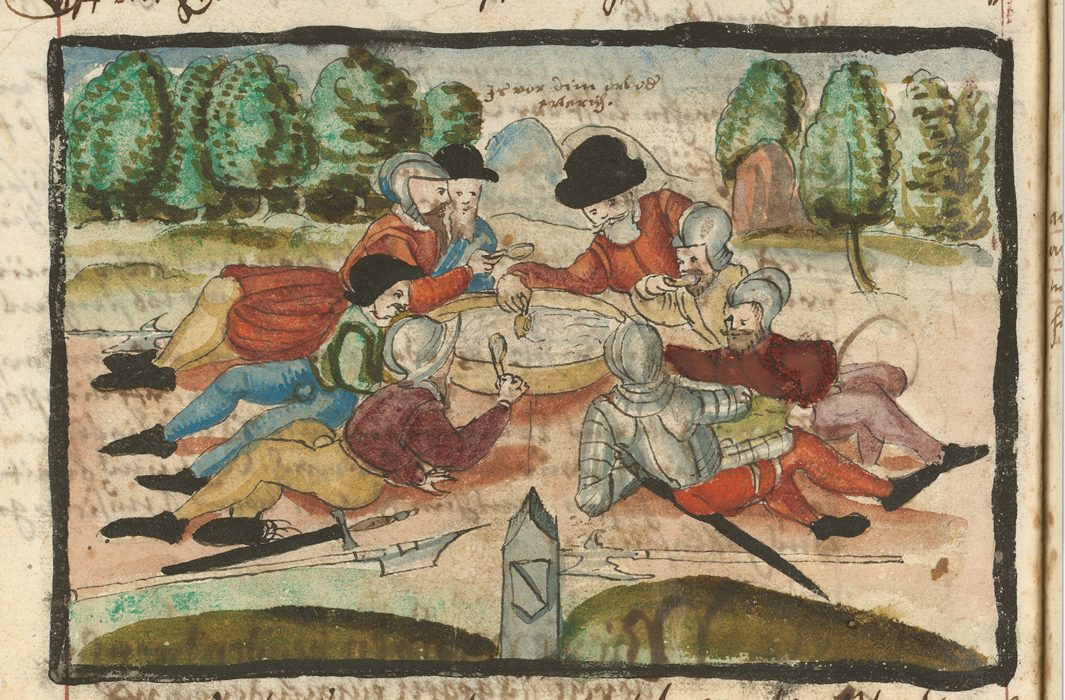Claiming History
Introduction
The Role of Historical Reasoning in Religious Conflicts
History is full of examples of religious conflict and strife. From the struggle of Christians with pagan cult, the Arab conquest and the Christian Crusades to the Reformation and the Israel-Palestine conflict of the 20th and 21st century, human experience can easily be described in terms of religiously motivated hatred and violence. At the same time, religion has had, and also continues to have the potential to overcome differences and create bridges even in the midst of great misery and war. Religious convictions, for instance, motivate the care and protection of marginalised individuals and groups, while religious interest groups make important contributions to peace building processes.
Along these lines, religion has been described either as one of the primary causes for violence and war or conversely as a facilitator of peace. These are well-established narratives that inform our debate about the benefits and shortcomings of ‘acting in belief’. But what role does history, and more specifically historical argumentation, play in conflict situations? Is history contributing or even amplifying religious conflicts or, on the contrary, acting towards peaceful solutions?
The conference approaches these and other questions from many different angles, providing a series of clearly delineated case-studies into religious claims to history.
In collaboration with the IRC Religious Conflicts and Coping strategies, University of Bern.

Programme
23.10.2019 – Day 1
Introduction and Opening Lecture
H18.00 Welcome and Introduction (Katharina Heyden, Adrian Brändli)
H18:30 Wendy Mayer (Adelaide), Reshaping the Past to Claim the Future: Unpacking the role of historical memory in religiously motivated violence
H19:30 Discussion
24.10.2019 – Day 2
Historical Case Studies – From the Present Back to Antiquity
H09:30 Agnes Schubert (Bern), Ritual Construction and Transformation of Religious Identities in the Context of the Kosovo Conflict
H09:50 David Plüss (Bern), Swiss Sermons in Wartime
H10:10 Discussion
H10:40 Break
H11:10 Angela Berlis and Martina Narman (Bern), Heretical or infallible popes? 19th century historical reasoning in the conflict over infallibility of the pope during and after the First Vatican Council
H11:40 Patrick Bahl (Münster), Church History as Decay: Gottfried Arnold’s Historiography as Refutation
H12:00 Discussion
H12:30 Break
H15:00 Francesca Maria Corrao (Rome), Memory of Oblivion: Italian history and lost memory of the Arab influence in medieval Sicily
H15:20 Christian Pfordt (Cambridge), Muslims in China, Chinese Muslims – a historical quest for identity
H15:40 Discussion
H16:10 Break
H16:40 Mattias Brand (Zürich), Manichaean historical reasoning and the formation of a new religion
H17:00 Jessica van ’t Westeinde (Bern), Claiming the past, shaping the future: spatial and temporal agency at the council of Ephesus 431 CE
H17:20 Christina Harker (Bern), Religious Pluralism in Greco-Roman Antiquity
H17:40 Discussion
25.10.2019 – Day 3
Epistemological and Political Reflections
H09:30 Luca di Blasi (Bern), Conflicts of Supersessionism
H09:50 Michaela Schäuble (Bern), Instrumentalizing Historical Hostilities and Advancing Religious Conflict: The Case of Mart Bax and the Marian Apparitions of Medjugorje
H10:10 Discussion
H10:40 Break
H11:10 Özgen Kolasin (Rome), Peace through Violence: the sacrificial mechanism as a religious resolution of conflicts
H11:30 Alessandro Saggioro (Rome), Peace studies, History, and History of religions: some reflections in the paths of Arnaldo Momigliano
H11:50 Discussion
H12:20 Break
Closing Lecture
H18:30 David Nirenberg (Chicago), ‘Historical Religions’: How the Past Reveals the Future in Judaism, Christianity, and Islam
H19:30 Discussion
Click here for the full biographies of the speakers and moderators.
"Kappeler Milchsupper" © Zentralbibliothek Zürich, Ms. B 316, fol. 418v.